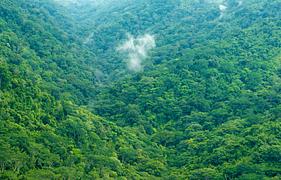
In the context of the complex challenges posed by climate change and pandemics, the IMF has established this facility with the objective of financing and strengthening the resilience of eligible countries. Eighteen countries have expressed interest in this financing, including ten African countries. What are the prospects for the beneficiaries of this facility?
To address this question, the Banque de France, the Foundation for International Development Studies and Research (Ferdi) and the Finance for Development Lab have organised this webinar on the eve of the Spring Meetings of the World Bank Group and the IMF. The webinar featured leading speakers representing beneficiary or potential beneficiary countries, as well as development stakeholders, who shared their perspectives on existing facilities. Bruno Cabrillac, Deputy Managing Director of the Statistics, Research and International Division of the Banque de France, moderated the discussions.
In his remarks, Patrick Guillaumont, Chairman of Ferdi, underscored that the Resilience and Sustainability Facility (RSF) represents a shift towards preventive rather than curative measures, in contrast to previous approaches. Funded by Special Drawing Rights (SDRs), it initially aims to support climate and health initiatives, with the possibility of extension to other areas, as explained by Magali Gilliot, Deputy Director of the European and Multilateral Policy Directorate at the Banque de France. William Roos, Head of the Multilateral Affairs and Development Department at the French Treasury, also emphasised that the FSR is helping to develop a more structural and longer-term approach for the IMF, with longer loans. Internationally, the G20's commitment to the redistribution of SDRs has set the tone, with several countries, such as France, earmarking their SDRs for this fund. Additionally, developing countries have demonstrated strong solidarity by utilizing their SDRs to finance concessional funds. This is exemplified by the Republic of Mauritius, which has already pledged support to the Poverty Reduction and Growth Facility and plans to allocate its SDRs to the Resilience and Sustainability Facility, as articulated by Pauline Chazarac, representative of the Ministry of Finance of the Republic of Mauritius.
Since its inception, the facility has recorded a financial commitment of $8 billion, of which $1.6 billion has been disbursed, according to Pritha Mitra, Head of Division at the International Monetary Fund.
The facility is recognised as an important tool for supporting policies related to climate change and health issues in Africa. Valérie Dabady, Head of Resource Mobilisation and Partnerships at the African Development Bank, cites Rwanda and Benin as two countries that have received significant amounts to address their own specific challenges. Alex Pouhé, Technical Advisor to the Minister of Finance and Budget of the Republic of Côte d'Ivoire, agrees, pointing out that this programme represents access of 150% of Côte d'Ivoire's IMF quota and supports 16 programmes.
However, challenges remain, notably the gap between countries' needs and available resources. Friederike Röder, Vice President of Global Citizen, pointed out that only a third of the promised SDRs have been allocated. Ishac Diwan, Director of Research, Finance For Development Lab, also drew attention to the need to manage debt levels in recipient countries.
Patrick Guillaumont, Chairman of Ferdi
Magali Gilliot, Deputy Director, European and Multilateral Policies, Banque de France
William Roos, Head of Multilateral Affairs and Development Department, Direction Générale du Trésor
Bruno Cabrillac, Deputy Managing Director, Statistics, Research and International Affairs Directorate General
Moderation
Alex Pouhé, Adviser to the Minister of Finance and Budget, Republic of Côte d'Ivoire
Pauline Charazac, Ministry of Finance, Republic of Mauritius
Valérie Dabady, Head of Resource Mobilization and Partnerships, African Development Bank
Friederike Roder, Vice President Global Policy and Advocacy, Global Citizen
Pritha Mitra, Head of Division, International Monetary Fund
Ishac Diwan, Research Director, Finance For Development Lab